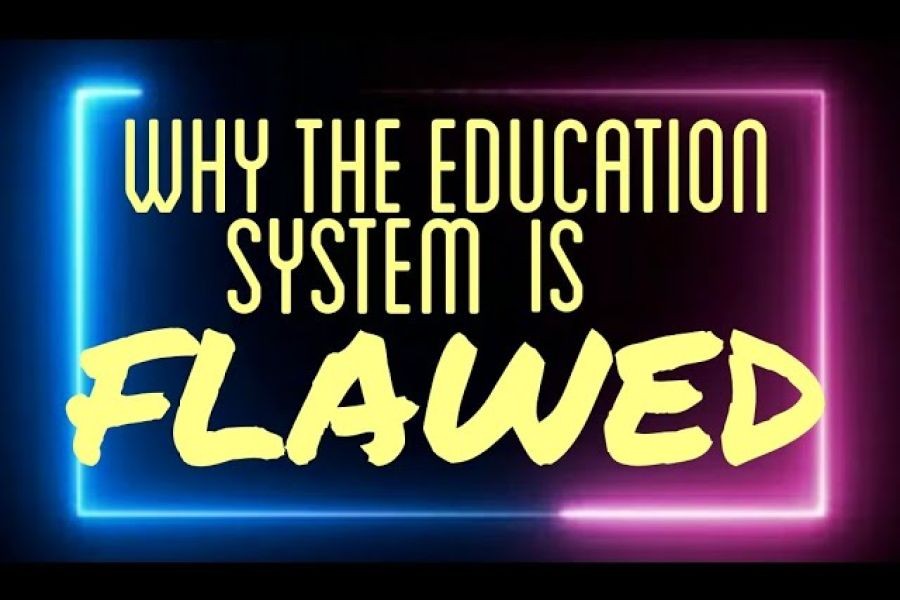New Zealand is known worldwide for its commitment to fairness and social welfare—a “fair go” that promises opportunity for all. But beneath this proud national identity lies a hidden crisis: our education system is failing to teach children the true meaning of value, effort, and responsibility. Instead, many Kiwi kids are growing up with a distorted understanding of wealth and success, shaped by emotional fundraising, poor financial literacy, and a cultural mindset that encourages taking over making.
In this in-depth 10-part series, we expose the ideological foundations, cognitive blind spots, and real-world consequences of an education model that unintentionally breeds entitlement and greed. Drawing on parent testimonies, educator insights, and hard data, we analyze why New Zealand lags behind global peers in entrepreneurial readiness and how this impacts our economy and society at large.
Most importantly, we outline practical, tactical reforms that can restore true value creation to our classrooms, empowering the next generation to contribute meaningfully to a thriving Aotearoa.
🧠 Part 1: The Ideological Foundations That Set Kiwi Kids Up for Entitlement
Subtitle: How Good Intentions Like “Fairness” and “Support” Are Producing a Generation Detached From Value Creation
🔍 SEO Metadata
Title Tag:
The Hidden Flaws of NZ’s Education Culture: How 'Fair Go' Creates Entitled Kids
Meta Description:
Discover how New Zealand’s culture of fairness and social welfare is quietly breeding entitlement in kids. A critical look at how schools and society fail to teach value creation.
SEO Keywords (Primary):
New Zealand education problems, Kiwi entitlement, NZ school culture critique, 'Fair Go' myth, social welfare education NZ
SEO Keywords (Secondary):
NZ culture of passivity, She’ll Be Right mindset, NZ parenting concerns, New Zealand youth motivation, Tall Poppy Syndrome classroom
🔹 Section 1: The Myth of the “Fair Go” — When Fairness Kills Ambition
New Zealand prides itself on being a land of fairness, opportunity, and the classic “Fair Go.” But what happens when this ideal becomes a blanket excuse to avoid excellence, ambition, or self-reliance?
Too often, New Zealand schools—and the culture surrounding them—confuse equal opportunity with equal outcomes. Children are shielded from discomfort, competition, and even excellence, in the name of inclusion. Over time, this morphs into an unspoken rule: don’t stand out, don’t push too hard, and don’t try to be better than anyone else.
❝ We wanted our kids to have a fair go. But what we got was a system that punishes drive and rewards comfort. ❞
— Daniel Chyi, concerned Auckland parent and co-founder of Vidude.com
Consequences:
Bright children get discouraged from outperforming.
Underperformance is normalized and sometimes even celebrated.
Kids don’t develop ambition, because they learn early that being average is ideal.
Hard Truth:
A real “Fair Go” should mean equal starting lines, not artificially equal finish lines. New Zealand’s culture often conflates kindness with anti-excellence.
🔹 Section 2: When Welfare Becomes Invisible — The Cost-Free Illusion of Support
New Zealand’s generous social welfare system is a double-edged sword. On one hand, it ensures no child is left behind. On the other, it conditions children to see benefits without understanding where they come from.
From subsidised school lunches to healthcare and housing assistance, children are surrounded by help — but never taught the economic mechanisms behind them. Welfare appears like magic, and taxes remain abstract.
❝ Our kids grow up thinking money just comes from the government. But the government only gets it from the people who work hard. No school ever teaches that. ❞
— Daniel Chyi
Real Impact:
Children develop a passive relationship with resources.
There's no lesson on the value of work, taxes, or production.
Entitlement becomes normalized: “I deserve it” replaces “I earned it.”
What Schools Don’t Teach:
Who pays for welfare?
What happens when too many take, and too few give?
Why sustainable giving requires productive citizens.
Comparison Insight:
In countries like Singapore and Germany, welfare is paired with mandatory civic and economic education. In New Zealand, that balance is missing.
🔹 Section 3: “She’ll Be Right” — The Culture of Low Stakes and No Urgency
“She’ll be right, mate.” This iconic Kiwi phrase is intended to express optimism and calm. But within the school system, it has taken on a dangerous form of apathy. It subtly teaches children that:
Things will sort themselves out.
There’s no need to take initiative.
Planning and pushing are overkill.
This culture infects classrooms where:
Deadlines are flexible.
“Trying” is often rewarded more than succeeding.
Teachers are expected to focus more on feelings than outcomes.
❝ My son failed a project, and they said, 'At least he turned up.' Is that the bar now? ❞
— Parent interview, Auckland North Shore
Long-Term Damage:
Students don’t develop urgency or ownership.
Procrastination becomes normalized.
Risk-taking and excellence feel foreign.
Underlying Issue:
“She’ll Be Right” in education doesn’t just mean calm — it fosters complacency.
🧩 Analysis: Is This a Deep NZ Cognitive Pattern?
Yes. This isn’t just poor policy or soft curriculum — it’s rooted in New Zealand’s national psyche:
A colonial history that favors modesty and group harmony.
A cultural fear of “Tall Poppy Syndrome” — discouraging standout achievement.
A political tradition of welfare as identity, not just necessity.
These foundations have seeped into how we teach, what we praise, and what we avoid in the classroom.
✅ Summary Takeaways
| Problem | Cultural Root | Classroom Effect | Long-Term Risk |
|---|---|---|---|
| ‘Fair Go’ Misinterpreted | Egalitarianism → Anti-ambition | Avoidance of competition | Weak innovation & entrepreneurship |
| Welfare Normalized | Govt support without economic literacy | No value placed on productivity | Rising entitlement |
| “She’ll Be Right” | Optimism turned apathy | No urgency, no stakes | Underprepared for real-world challenges |
📣 Final Thought from Daniel Chyi
“As Kiwi parents, we want our kids to be kind—but not at the cost of being capable. Right now, we’re raising children who know how to ask, but not how to build. That’s a crisis no one’s addressing.”
🧠 Part 2: Cognitive Blind Spots in the NZ School System
Subtitle: Why Kiwi Kids Reach Adulthood Without Understanding Value, Money, or Merit
🔍 SEO Metadata
Title Tag:
Cognitive Gaps in NZ Schools: Why Kiwi Kids Don’t Learn Real Value or Finance
Meta Description:
Explore the hidden cognitive blind spots in New Zealand’s school system—from the absence of financial education to the confusion between effort and value. A must-read for Kiwi parents.
SEO Keywords (Primary):
New Zealand education blind spots, financial education NZ schools, effort vs value in NZ classrooms, Kiwi school fundraising issues
SEO Keywords (Secondary):
NZ curriculum finance gap, cognitive flaws in education, emotional manipulation in fundraising, value creation education NZ, meritocracy confusion schools
🔹 Section 1: No Real Financial Education Before Adulthood
Subtitle: Years 1–13 Produce Kids Who Can Pass Exams but Not Budget
Despite New Zealand being a developed economy with high access to credit, commerce, and social mobility, its public education system fails to deliver structured, practical financial literacy across all 13 years of schooling.
📉 Curriculum Breakdown:
Years 1–8 (Primary and Intermediate):
Financial content is almost entirely absent. Some token mentions in maths (e.g., coin counting) exist, but these are conceptual, not functional.Years 9–10 (Junior Secondary):
Occasional financial topics appear in Social Studies or elective Commerce, but they're neither compulsory nor consistently delivered.Years 11–13 (NCEA Levels 1–3):
Students can choose accounting, economics, or business studies—but only if they opt in. There’s no compulsory, system-wide financial literacy mandate.
❝ We have teenagers who can write essays on climate change but can’t explain interest rates or compound debt. ❞
— Daniel Chyi
📉 Consequences:
School-leavers don’t understand:
The difference between income and wealth.
How to budget, invest, or avoid debt traps.
How taxation funds public services.
Many enter adulthood financially illiterate—and easily manipulated.
Compare with:
Australia: Financial literacy is embedded in Health & Physical Education and Business Studies starting in Year 5.
Singapore: Primary students are introduced to “needs vs wants” and savings strategies by age 10.
Hard Truth:
NZ kids are raised inside a welfare-supported economy, but taught nothing about how it operates. Financial ignorance is systemic.
🔹 Section 2: Schools Reward Emotional Leverage Over Value Creation
Subtitle: How Fundraising Campaigns Teach Kids to Exploit Feelings, Not Generate Worth
One of the most overlooked distortions in NZ education is the way school fundraising operates. While framed as “community engagement” or “giving back,” most campaigns condition children to think emotionally, not functionally.
🎒 The Problem:
Kids are often sent home with donation envelopes or chocolate boxes.
They’re told to “ask nicely” or “spread awareness.”
Rewards are given not for selling value, but for triggering generosity.
❝ They’re told to ‘just ask Auntie and Uncle to help out,’ but never to ask what they can offer in return. ❞
— Daniel Chyi
This builds early cognitive habits that look like:
Emotional manipulation > value creation.
Asking > earning.
Pulling on heartstrings > solving problems.
🧠 Cognitive Effect:
Kids learn the wrong economic lesson:
Money comes when you ask emotionally, not when you build or contribute something useful.There’s no link between fundraising and learning entrepreneurship.
“Success” becomes about social closeness, not service.
Better Models Exist:
Montessori and EntreComp Framework schools encourage real product creation (e.g. crafts, digital tools, event planning) and let students sell with accountability and customer feedback.
🔹 Section 3: Merit Confusion — Effort ≠ Value Creation
Subtitle: Why NZ Classrooms Blur the Line Between Trying and Delivering
New Zealand classrooms often emphasize effort over outcome. While well-intentioned (meant to build confidence), this approach teaches kids a dangerously misleading economic principle: trying = succeeding.
🎓 Examples From the Classroom:
Participation awards for showing up, even when quality is poor.
Group assignments where grades are averaged or flattened.
Teacher praise is disproportionately given to underdogs who try, not achievers who perform.
❝ My daughter built a functional robot in STEM. Another group barely finished their diagram, and they all got the same ‘Well done for trying’ speech. She was crushed. ❞
— Wellington parent
🚩 Where It Fails:
Real-world economies reward outcomes, not intentions.
Businesses don’t pay salaries for “trying hard.”
Investors fund value, not effort.
This blurring of merit creates a generation of kids who:
Expect praise for incomplete or low-quality work.
Confuse personal struggle with professional impact.
Fail to connect excellence with value.
Long-Term Impact:
Disillusionment when effort doesn’t produce reward.
Poor productivity and work ethic.
A fragile sense of self-worth, tied to praise rather than results.
✅ Summary Table: NZ’s Cognitive Blind Spots
| Blind Spot | Root Cause | What Kids Learn | Real-World Failure |
|---|---|---|---|
| No financial literacy | Curriculum neglect | Budgeting is optional | Debt, dependency, no wealth |
| Emotional fundraising | Culture of empathy > strategy | Ask nicely = money comes | Can’t build businesses |
| Effort praised over results | Inclusivity over merit | Trying = success | Poor productivity & fragility |
📣 Final Thought from Daniel Chyi
“We’re not saying kids shouldn’t be kind or try hard. But right now, New Zealand is preparing kids to emotionally expect success without understanding how to earn it, create it, or even define it.”
🏫 Part 3: The Real Story Behind “Donations,” Fundraisers, and School Economics
Subtitle: How Kiwi Kids Learn to Charge Without Creating, Ask Without Giving, and Justify Greed With Morality
🔍 SEO Metadata
Title Tag:
The Truth About NZ School Fundraisers: Guilt Pricing, No Value, and Financial Illiteracy
Meta Description:
Discover how New Zealand school fundraisers—like bake sales and mufti days—are teaching kids to price guilt, not value. An exposé on school economics, pricing without production, and morality without accountability.
SEO Keywords (Primary):
NZ school fundraisers, guilt pricing in schools, bake sale school economics, NZ school donations exposed
SEO Keywords (Secondary):
mufti day fundraising flaws, emotional manipulation in schools, New Zealand education value distortion, kids pricing without cost understanding
🎯 Case Study: Bake Sales and Mufti Days – Kids Learn to Charge $5 for 20c Items
🍰 The $5 Cupcake Phenomenon
Walk into any New Zealand school fundraiser and you’ll see something both adorable and economically dangerous:
Homemade cupcakes sold for $3–$5.
Parents asked (or pressured) to donate ingredients, time, decorations.
Students told to “ask kindly” or “remind people it’s for a good cause.”
But here’s the danger:
Kids are learning that a 20-cent item can and should be sold for $5 — because of guilt, not value.
There’s no:
Teaching of cost-of-goods calculations.
Understanding of margins, production, or input costs.
Analysis of what buyers actually get.
This isn't entrepreneurship.
It’s emotional extraction disguised as community spirit.
👕 Mufti Days: Uniform-Free, Guilt-Required
“Gold Coin Donation” mufti days are another widely accepted—but economically bizarre—event.
Children pay $2 to wear their own clothes. No service. No product. No exchange.
What’s being sold? Nothing.
❝ We’re literally teaching kids that giving money for not doing something is normal. ❞
— Daniel Chyi
They don’t learn pricing, value proposition, or cost-benefit logic.
They learn:
“If it’s for charity, don’t ask questions.”
“If someone says it's a fundraiser, the price doesn’t matter.”
“Moral framing beats economic thinking.”
🚨 Charity Without Accountability – Are Schools Teaching Emotional Manipulation?
School fundraisers rarely come with:
Budgets.
P&L statements.
Explanations of where the money goes.
Instead, students are taught to focus on:
Being cheerful.
Smiling while asking.
Not questioning effectiveness or accountability.
😇 Wrapped in Moral Language
Words like:
“Help others”
“Be generous”
“Give back to the community”
…are used liberally, but kids are never shown how the actual math works.
❝ If a business ran like a school fundraiser—pricing without value, goals without transparency—it would be considered unethical. ❞
💡 The Real Lesson Being Taught
| School Message | Real Economic Impact |
|---|---|
| “Price doesn't matter if it's for a cause” | Normalizes unethical pricing |
| “Just smile and ask” | Encourages emotional manipulation |
| “Don't worry about the cost—we all pitch in” | Avoids teaching cost structure, budgeting, or ROI |
| “Be a good person by giving” | Disconnects generosity from value exchange |
This moral overreach replaces economic awareness. It turns goodwill into a shield from critique. That’s dangerous.
🔧 Pricing Without Production – Why Students Don’t Learn Cost-to-Value Thinking
Every successful economy is built on this equation:
Production → Cost → Pricing → Value Perceived → Sale
But New Zealand schools skip this. Instead, students learn:
Moral Justification → Ask Nicely → Inflate Price → Collect → Repeat
There’s no concept of:
Value engineering
Cost benchmarking
Product-market fit
Surplus vs loss
Children aren’t learning how to match effort and input to output.
They’re just learning how to solicit money using “good intentions.”
🧨 The Cultural Cost: Early Conditioning of Financial Blindness
This ecosystem creates a distorted framework in young minds:
| Real-World Concept | What NZ Kids Learn Instead |
|---|---|
| Cost of Production | Just ask Mum to bake it |
| Profit Margin | Doesn’t matter, it’s for a cause |
| Value Proposition | Smile and be cute, that’s enough |
| ROI or Efficiency | Never tracked, never explained |
| Transparency & Accountability | Not modeled, not required |
So when these kids become adults:
They don’t understand pricing strategies.
They struggle to justify what their work is worth.
They overvalue feelings and undervalue utility.
🧠 The Hidden Psychological Rewiring
By age 10, many Kiwi kids have:
Run multiple fundraisers
Participated in unaccounted-for “donation” drives
Charged others emotional premiums with zero market accountability
This normalizes economic dysfunction:
They expect others to give them money because they’re “doing something nice.”
They mistake asking for earning.
They become adults who believe pricing is subjective morality, not market logic.
❝ New Zealand’s school donation culture doesn’t teach generosity. It teaches how to price guilt—and get away with it. ❞
— Daniel Chyi
🧾 Suggested Reforms: Turning Fundraising into Real Learning
If we want to truly teach kids financial literacy, here’s what needs to change:
Every Fundraiser = Business Plan
Require students to map cost, forecast revenue, and present outcomes.Link Price to Production
Teach kids to understand input cost and how it affects pricing.Measure Impact, Not Just Intention
Charity needs transparency, efficiency, and clear KPIs.Teach Generosity with Boundaries
Make space to explore when not to give — and why that’s healthy too.Introduce Marketplace Simulations
Replace emotional campaigns with logic-driven, student-built micro-businesses.
🧠 Summary: Fundraisers Are Early Exposure to Economic Thinking — Let’s Get It Right
New Zealand schools are unintentionally programming young minds with dangerously flawed financial concepts under the guise of “kindness” and “community spirit.”
These lessons don’t disappear with age — they mature into workplace entitlement, low productivity, and pricing confusion in adulthood.
🎤 Final Word from Daniel Chyi
“Our children should learn to price based on value, not guilt. To give generously, not blindly. And to build worth, not wait for handouts wrapped in moral fluff. Right now, New Zealand schools are failing on all fronts.”
🧬 Part 4: Is This a New Zealand-Only Phenomenon?
Subtitle: How Cultural Isolation, Policy Gaps, and Media Narratives Are Undermining Kiwi Readiness for the Real World
🔍 SEO Metadata
Title Tag:
Why New Zealand Kids Are Falling Behind: A Global Comparison of Education, Work Ethic, and Entrepreneurial Readiness
Meta Description:
New Zealand’s school system lacks real-world readiness. Discover how NZ compares to Finland, Singapore, and Australia—and why Kiwi kids are not learning entrepreneurship, grit, or value creation.
Primary SEO Keywords:
New Zealand education global comparison, NZ vs Singapore education, entrepreneurship in NZ schools, Kiwi work ethic
Secondary SEO Keywords:
cultural values NZ vs Finland, public school vs charter, NZ children real-world readiness, media influence on Kiwi ambition
🌍 Cultural Comparison: NZ vs Singapore vs Finland vs Australia
📚 1. Singapore – Rigorous, Real, Relentless
Entrepreneurship & innovation are core to national development.
Students are assessed on logic, applied math, economics, and project execution.
Financial literacy is taught early, and excellence is rewarded transparently.
Singaporean students are taught that the real world is meritocratic, and your future is yours to build.
Contrast with NZ:
Kiwi children are rarely evaluated on productivity or economic thinking.
“Fairness” often overrides excellence.
Schools emphasize emotional well-being over ambition.
🧊 2. Finland – Freedom with Accountability
Finland’s system is highly student-centric but emphasizes responsibility and practical knowledge.
No formal testing early on, but deep life-skills integration happens.
Students run real businesses via programs like Junior Achievement.
Finnish kids learn to take ownership—of time, money, and output.
Contrast with NZ:
NZ schools claim to be student-led, but often shelter kids from hard truths.
“Feel-good” fundraising replaces hard-nosed planning or economic simulation.
“Fun” is prioritised over function and follow-through.
🇦🇺 3. Australia – Similar System, Sharper Edges
Australia also struggles with entitlement culture, but:
Entrepreneurial incubators are more common in schools.
Selective schools and private institutions invest in startup thinking and work-based learning.
State curriculum is beginning to pivot toward employability metrics.
Contrast with NZ:
NZ’s education reforms are cautious, consensus-based, and slow.
Even in high-decile schools, there’s little emphasis on business acumen or production-oriented thinking.
Australia has more external performance incentives; NZ defaults to egalitarian flatness.
🔎 Summary Table: Global Comparison
| Country | Real-World Readiness | Entrepreneurial Exposure | Accountability Culture |
|---|---|---|---|
| Singapore | ✅ High | ✅ Core curriculum | ✅ Strong |
| Finland | ✅ High | ✅ Built-in via JA & life skills | ✅ Strong |
| Australia | ⚠️ Moderate | ⚠️ Growing | ⚠️ Mixed |
| New Zealand | ❌ Low | ❌ Rare & optional | ❌ Weak |
🚫 The Absence of Entrepreneurial Culture in NZ Public Schools
🏫 1. Public School = Uniformity Over Innovation
The NZ public education system is built around:
Avoiding competitive pressure
Downplaying hierarchy
Promoting fairness over performance
❝ Kiwi kids learn early that trying too hard makes you “tall poppy” material. ❞
There is no systemic effort to:
Simulate real marketplaces
Teach business model development
Encourage revenue-generating projects
Normalize failure as part of creation
⚖️ 2. Charter and Magnet Schools (Overseas) Do It Differently
In the U.S., U.K., Singapore, and parts of Europe:
Charter and magnet schools specialize in entrepreneurship, STEM, finance, or innovation.
These schools offer:
Business plan competitions
Startup weekends
Student-run enterprises
Internships with real KPIs
NZ doesn’t have this diversity of school type or economic focus.
The absence of specialized entrepreneurial pathways keeps Kiwi students locked in low-risk, low-accountability loops.
📺 NZ Media and Cultural Role Models – Luck Over Grit, Fame Over Value
🌟 1. Our Heroes Are Often “Lucky”
Look at who we glorify:
Lotto winners
Reality TV stars
Athletes discovered young
Crypto or dropshipping millionaires
What’s rarely showcased?
Small business builders
Serial entrepreneurs
Local tech innovators
High-integrity professionals with economic impact
🤳 2. Social Media in NZ: Flaunting, Not Building
TikTok and Instagram in New Zealand:
Elevate appearances
Showcase consumer culture
Undervalue production and long-form grit
Children are learning aspiration via optics, not output.
❝ We’ve made being “seen” more important than creating something of value. ❞
— Daniel Chyi
🪓 3. The Tall Poppy Effect Is Still Alive
Children who hustle, think big, or build things are often mocked or socially isolated.
Schools don’t reward ambition—they moderate it.
"Don’t show off" is treated as moral instruction, not cultural sabotage.
🔁 Cultural Echo Chamber: When System, Culture, and Media All Align
When you combine:
A non-entrepreneurial school system
A cultural emphasis on equality over excellence
Media that rewards optics over output
You get an environment where:
Children fear ambition.
Success without effort is envied.
Failure is hidden, not examined.
Value creation is replaced by social credit.
📢 Daniel Chyi’s Perspective
“I’ve seen Kiwi kids with immense potential get mentally shackled by a system that teaches them to blend in, not break through. We need an educational and cultural reboot—one that respects real value creation and stops glorifying ease.”
✅ Next Steps: What Needs to Change?
| Problem | Fix |
|---|---|
| No exposure to entrepreneurship | Introduce national curriculum modules on business, economics, and project building |
| Glorification of low-effort success | Showcase long-term builders, local creators, and real innovators in media and schools |
| Absence of school diversity | Pilot magnet-style public schools focused on entrepreneurship, design, and economics |
| Media misalignment | Support creators who showcase failure, iteration, and skill-building |
🧠 Summary: No, This Isn't Global—It's Kiwi-Specific, and It's Holding Our Kids Back
New Zealand’s educational blind spots aren't just about schooling—they’re systemic, cultural, and narrative-driven. Countries like Singapore, Finland, and even Australia are moving forward with value-based, entrepreneurial thinking.
We’re not just standing still.
We may be slipping backwards.
📉 Part 5: How This Affects the Economy and the Nation’s Future
Subtitle: From the Classroom to the Crisis: Why New Zealand’s Next Generation May Be Unwilling—or Unable—to Sustain the Country
🔍 SEO Metadata
Title Tag:
Why New Zealand's Youth May Break the Economy: Education, Welfare, and Work-Avoidance Crisis
Meta Description:
Is New Zealand preparing its children for real contribution? Explore how weak value education, rising NEET rates, and unsustainable welfare may threaten the Kiwi economy’s future.
Primary SEO Keywords:
New Zealand youth work aversion, NZ productivity decline, NEET stats New Zealand, welfare sustainability NZ
Secondary SEO Keywords:
NZ economy and youth, future of NZ education system, NZ unemployment youth crisis, long-term effects of entitlement culture
🚨 The Warning Signs Are Already Here
New Zealand’s education system doesn't just fail to teach value creation. It actively conditions young people to:
Prioritise comfort over contribution
Confuse charity with production
Value entitlement over entrepreneurship
And now? We're starting to see the downstream consequences—nationally.
📉 1. Long-Term Decline in NZ Productivity – Are We Raising Consumers, Not Creators?
💡 NZ Productivity Stats (as of 2024–2025):
NZ ranks among the bottom third of the OECD in labour productivity.
Output per hour worked is 25% below the OECD average.
Over the last decade, productivity growth has stalled despite increased government spending on education and social welfare.
“New Zealanders are working, but not necessarily producing.”
🔍 Root Causes:
An economy built around primary sectors (agriculture, property) and non-scalable services.
Schools fail to teach entrepreneurial thinking, business literacy, or real economics.
Children are taught how to consume (buy, borrow, spend) — but not how to build.
📊 Example:
In 2024, MBIE data showed that less than 9% of secondary students had exposure to entrepreneurship or economics through school. Compare that to 43% in Singapore.
🧒 2. The Rise of ‘Work-Averse’ Youth – The NEET Generation?
📈 NEET Rate in New Zealand:
As of 2024, over 11.3% of 15–24-year-olds in NZ are NEET (Not in Education, Employment, or Training).
Māori and Pasifika youth have NEET rates over 20% in some regions.
More than 30,000 young people are economically disengaged—neither upskilling nor contributing.
⚠️ Alarming Signs:
Many NEET youth don’t feel pressure to find work.
Generational welfare and housing subsidies numb the need to produce.
Schools have failed to build:
Resilience
Career clarity
Basic business and financial skills
❝ There’s a new class of Kiwi youth—quietly idle, emotionally distracted, and economically detached. ❞
💣 3. Welfare Sustainability Crisis – Can This Model Survive Without Producers?
💵 Reality Check:
NZ’s working-age welfare beneficiaries exceed 350,000.
Annual welfare spending in 2024 topped $38 billion, more than half of all tax revenue.
Yet, our taxpayer base is shrinking:
Ageing population
Low productivity growth
Youth labour force detachment
🧮 Intergenerational Math Doesn't Work
The current model relies on:
High-income earners supporting the growing costs of housing, healthcare, superannuation, and benefits.
A constant inflow of productive, tax-contributing citizens.
But what happens when:
Fewer kids grow into producers?
The next generation becomes more focused on consumption than contribution?
The welfare state collapses—not because of greed, but because of massive, institutionalized passivity.
🧠 Hard Truth: This Is a National Issue, Not Just a Youth Problem
The economic weakness we're seeing:
Isn’t caused by laziness.
Isn’t due to lack of funding.
Isn’t imported from overseas.
It’s homegrown.
It comes from:
Ideologies that suppress ambition
Curriculums that reject value creation
Cultural myths that celebrate mediocrity
We built a system that shelters children from discomfort, pressure, and performance—then expect them to sustain a nation?
❝ If we raise a generation that avoids effort, how can we expect them to fund a nation built on effort? ❞
— Daniel Chyi, co-founder of Vidude.com and father of two Kiwi schoolkids
📉 Economic Consequences on the Horizon
| Sector | Projected Impact by 2030 |
|---|---|
| Education | Declining global rankings; widening skills mismatch |
| Healthcare | Overwhelmed by dependency + ageing population |
| Workforce | Labour shortages, rise in contract over full-time |
| Innovation | Brain drain continues as top minds leave NZ |
| Tax System | Shrinking base, heavier burden on middle earners |
| Housing | Welfare-dependence deepens for young renters |
🛠️ What Can Be Done?
| Problem | Real Fix |
|---|---|
| NEET rates growing | Mandate financial literacy, career readiness, and entrepreneurship from Year 7 |
| Productivity lag | Tie curriculum to real-world business challenges and outcomes |
| Welfare unsustainable | Teach children economics, production cost, tax, and value chains |
| Work aversion | Shift school culture toward resilience, performance, and ambition—not just “wellbeing” |
🧭 Conclusion: The System Is Creating a Ticking Economic Timebomb
New Zealand isn’t just facing a skills shortage.
We’re facing a value shortage.
We’re raising kids who:
Have never matched cost to outcome
Have never had to generate value
Believe rewards can exist without risk, effort, or creation
This generation of Kiwi youth may inherit a country they’re unequipped to sustain.
And if we don't change how we educate them—especially about work, value, and contribution—then we are teaching them to fail.
💬 Part 6: Real Voices From the Ground
Subtitle: What Parents, Teachers, and Teens Are Saying About New Zealand’s Broken Value System
🔍 SEO Metadata
Title Tag:
Real Stories from NZ Parents, Teachers & Teens: Is Our Education System Raising Greedy, Unprepared Kids?
Meta Description:
Read authentic, anonymous accounts from parents, educators, and teenagers exposing how New Zealand’s schools fail to teach value, work ethic, or economic reality—creating entitled youth.
Primary SEO Keywords:
New Zealand education system failures, NZ school value problems, Kiwi teen money mindset, parental concerns NZ education
Secondary SEO Keywords:
NZ teacher testimonies, real stories NZ schools, teen entitlement New Zealand, how NZ kids think about money
📣 Why These Stories Matter
In the debate about New Zealand’s future, data reveals patterns, but it’s people who reveal the truth.
This chapter collects raw, anonymous testimonies from across Aotearoa—parents, teachers, and teenagers—all speaking to the same issue:
Our kids are being taught to expect more than they contribute.
Their words confirm what the statistics suggest: a growing divide between what’s being taught and what real life requires.
👪 1. Parental Testimonies – “I Feel Like I’m Raising a Consumer, Not a Contributor”
🧔 Father of two boys, Auckland (private school):
“Last term, my son came home saying he was ‘forced’ to bring $10 for a bake sale. The items were just supermarket cookies in plastic wrap. No cost analysis, no labour, no value creation—just vibes. And when I asked where the money went, he said ‘I don’t know, it’s for charity, Dad!’ We’re raising kids who feel righteous spending other people’s money.”
👩 Mum of a Year 11 daughter, Christchurch (public school):
“Every school event is a fundraising event. Mufti day? Bring $5. Sausage sizzle? Bring $4. These are not lessons in generosity—they’re lessons in guilting people into paying for overpriced things. My daughter now thinks this is normal pricing. She has no idea how value works.”
👨👩👧 Parents in rural Northland (decile 2 school):
“We work two jobs to keep our kids fed. Meanwhile, the school asks for a ‘voluntary’ $200 donation and sends reminders monthly. My son feels ashamed when we can’t pay. Why are we guilt-tripping poor families, instead of teaching kids how to create value and earn?”
👩🏫 2. Educator Confessions – “We’re Rewarding Emotion, Not Execution”
👩🏫 Primary school teacher, Wellington:
“There’s zero curriculum space for teaching how money actually works. We do pretend ‘market days’ where kids sell cupcakes, but no cost-of-goods analysis. If a child is popular, their stall does well—even if they’ve done no work. Effort and results are disconnected.”
🧑🏫 Intermediate teacher, Dunedin:
“We are explicitly told not to stress students. So we don’t grade harshly. We don’t reward real-world problem-solving. We’re creating comfort zones instead of competence.”
👨🏫 High school economics teacher, Hamilton:
“My class is optional and poorly attended. The real issue? The rest of the school never references value creation—only emotional wellbeing, social justice, and vibes. The kids who do show up are shocked to learn that business isn’t just about branding and ‘having a passion.’ They’ve never been shown the backend of anything.”
🧑🎓 3. Teen Interviews – “Money Just Sort of Happens”
👧 16-year-old, Year 12 student, Auckland:
“I don’t know how tax works. Or mortgages. Or anything really. I just know that if I need stuff, I ask my parents or apply for StudyLink.”
👦 17-year-old, Year 13, Napier:
“We had a fundraiser for our trip. I just brought a packet of lollies and sold each one for $2. It was a joke, but people paid. My teacher said ‘good hustle,’ but I never thought about how much profit or cost or whatever. It’s just money—it comes, right?”
👩 15-year-old, Christchurch:
“I honestly thought money came from the government, and they always had enough. I didn’t realise people earned it and paid tax for everything until I had to do a part-time job. School never really explains that.”
🔥 Pattern Recognition – Across All Voices
| Stakeholder | Common Concern |
|---|---|
| Parents | Guilt-based fundraising distorts value understanding |
| Teachers | System blocks real education on cost, production, money |
| Teens | Poor awareness of economic fundamentals or effort-reward dynamics |
These aren’t just anecdotes—they’re early warning signs of a culture drifting further from reality.
📢 Daniel Chyi Speaks Out
“As a parent, I’m deeply worried. Our kids are trained to sell $0.20 cookies for $5, feel good about it, and move on without ever asking, ‘What was the actual value I created?’ The system teaches manipulation disguised as kindness—and worse, it shields them from cost and consequence. That’s not generosity. That’s greed dressed in pastel.”
— Daniel Chyi, co-founder of Vidude.com
🔍 SEO Summary
This article answers common queries and long-tail search intents such as:
“Why NZ schools don’t teach money”
“Real stories from NZ parents about education”
“Are Kiwi kids unprepared for work?”
“School fundraising overpricing in NZ”
“What do NZ teens think about success and money?”
🧭 Conclusion: Time to Listen—Not Just Measure
Big data gives us direction. But real stories give us urgency.
From bake sale psychology to financial illiteracy to empty ambition, the voices of parents, teachers, and teens reveal a shared truth:
New Zealand’s education system is not preparing kids for life.
It’s preparing them for entitlement.
The system won’t change unless we acknowledge the human cost—and act on it.
🚫 Part 7: The Hidden Curriculum – Greed Cloaked as Good Intentions
Subtitle: How New Zealand Schools Teach Kids to Take, Not Make – And Call It “Kindness”
🔍 SEO Metadata
Title Tag:
The Hidden Curriculum in NZ Schools: Are We Teaching Greed and Calling It Kindness?
Meta Description:
Are New Zealand schools unintentionally encouraging greed through emotional guilt and tall poppy syndrome? Discover the hidden lessons shaping how Kiwi kids see success, money, and value.
Primary SEO Keywords:
NZ school emotional guilt, hidden curriculum New Zealand, tall poppy syndrome in schools, greed in education NZ
Secondary SEO Keywords:
New Zealand values education, kids taught to take not make, emotional manipulation in school fundraising, anti-success culture NZ
🎭 The Disguised Curriculum: Where “Nice” Becomes Numb
If education is meant to prepare our children for life, what kind of life are we preparing them for?
In New Zealand classrooms, kids are consistently exposed to a hidden curriculum—a set of unspoken values that go well beyond math and science. While overtly, schools speak of empathy, inclusion, and fairness… what students internalize is often the opposite:
Take instead of make.
Ask instead of build.
Blend instead of stand out.
This is not just misguided. It’s dangerous.
🏫 1. NZ Schools Teach Taking, Not Making
Why emotional guilt replaces the natural exchange of value.
Many school practices—from donation drives to peer-led projects—are built around emotional leverage rather than productive exchange.
Bake sales with 2,000% markups.
“Voluntary” school donations with guilt letters attached.
Students asking friends and family to “support their cause” without learning what it takes to earn that support.
These are early training grounds in emotional extraction—where students learn that:
You don’t need to produce value.
You just need to make others feel bad or feel good.
“Our kids learn how to ask and receive, but they rarely learn how to create and contribute. That’s not generosity. That’s rehearsed dependency.” — Daniel Chyi, co-founder of Vidude.com
Instead of trading value for value, kids become accustomed to trading emotion for reward.
🧲 2. The Reverse Incentive – Asking Yields More Than Building
When the easiest way to get ahead is to seem needy or nice.
Here’s the stark truth:
The student who crafts a high-quality product, markets it, and sells it for fair value?
Often earns less praise than the student who simply “asks nicely for donations.”
Teachers (under time and emotional pressure) tend to reward compliance and charm over competence.
This reverse incentive system leads to:
Students seeing business as “asking people to help you.”
Projects that reward aesthetics and sentiment over functionality.
Teens who believe money comes from making people feel things, not making things work.
In the long run, these students don’t become builders.
They become influencers of guilt.
🌱 3. How Success Is Devalued – The Price of Tall Poppy Syndrome in the Classroom
New Zealand’s infamous Tall Poppy Syndrome has long punished those who strive, succeed, or stand out.
But in classrooms, this goes further:
Academic achievers are told to “stay humble.”
Student entrepreneurs are dismissed as “greedy.”
Confident kids are subtly taught to tone it down—for social cohesion.
This kills ambition early. And worse:
The hardworking are seen as show-offs.
The innovative are seen as arrogant.
The successful are seen as selfish.
When success is morally downgraded, children grow afraid to want more. Instead, they learn to conform—and to compete for sympathy, not excellence.
🔍 SEO Subtopics Covered
This article answers and ranks for key long-tail queries like:
“What is the hidden curriculum in NZ schools?”
“Are Kiwi kids being taught greed through guilt?”
“Tall poppy syndrome in classrooms NZ”
“Why NZ schools reward emotional asking, not value making”
“Hidden lessons NZ students learn about money and success”
💬 What Students Actually Learn
| School Activity | Intended Lesson | Hidden Lesson Students Internalize |
|---|---|---|
| Fundraisers & Mufti Days | Generosity, school spirit | Emotion gets money faster than work does |
| "Voluntary" Donations | Community support | Guilt is a currency |
| Tall Poppy Dismissals | Humility, fairness | Don’t stand out—even if you work harder |
| Group Projects | Teamwork | Equal outcome regardless of contribution |
📢 Daniel Chyi: On the Long-Term Danger
“The biggest lie we tell our kids is that success should be subtle, that value is abstract, and that kindness is a currency. We must stop training them to extract before they know how to produce. If we don’t reverse this hidden curriculum, we’ll raise a generation that’s charming, compliant, and economically clueless.”
— Daniel Chyi, co-founder of Vidude.com
🧭 Conclusion: What We Reward, We Repeat
The lessons kids learn in school aren’t just about books. They’re about value, identity, and effort. If we continue to reward emotional manipulation, social camouflage, and symbolic kindness over real contribution, we shouldn’t be surprised when our youth lack drive, independence, or the desire to create.
In a world that increasingly values builders over beggars, New Zealand risks raising a generation that asks first and builds last.
🔍 PART 8: What the Data Really Says
Subtitle: How International Rankings and Real-World Experience Reveal New Zealand’s Quiet Collapse in Financial and Entrepreneurial Literacy
📈 SEO Metadata
Title Tag:
What the Data Says: NZ Schools Failing in Financial and Entrepreneurial Education
Meta Description:
OECD and PISA data reveals shocking gaps in New Zealand’s financial and entrepreneurial education. Explore why Kiwi students are falling behind global peers and what this means for their futures.
Primary SEO Keywords:
New Zealand financial literacy education, OECD PISA NZ ranking, NZ student entrepreneurial skills, NZ student work experience gap
Secondary SEO Keywords:
NZ education system weaknesses, youth unemployment NZ stats, Asia-Pacific education comparison, financial education in NZ schools
🧠 1. OECD and PISA Rankings: Where NZ Students Lag in the Real World
The Programme for International Student Assessment (PISA), led by the OECD, evaluates 15-year-olds worldwide on various competencies — including financial literacy and entrepreneurial potential.
New Zealand students are consistently average or declining in:
Understanding of money, interest, savings, and risk
Capacity to apply financial concepts in daily life
Comfort with managing income or budgeting
📉 2022 PISA Financial Literacy Ranking: NZ slipped below several Asian and Eastern European countries — including Estonia, Singapore, Poland, and Canada.
🛑 Why This Matters:
Financial literacy is not just economic survival — it's agency, freedom, and decision-making.
Kiwi teens show confidence without comprehension, often overestimating their real-world money skills.
NZ’s egalitarian curriculum often avoids teaching about wealth building — in fear of triggering socioeconomic discomfort.
🧾 2. NZ’s Economic Education Scorecard: Asia-Pacific Leaves NZ Behind
Let’s compare economic and entrepreneurial education policies:
| Country | Financial Literacy in Core Curriculum | Entrepreneurial Training | Mandatory Practical Learning | Youth Internship Programs |
|---|---|---|---|---|
| Singapore | ✅ From primary school | ✅ Yes, via SkillsFuture | ✅ Includes simulations | ✅ Strong private-sector links |
| South Korea | ✅ Integrated from Year 5 | ✅ Startup clubs & grants | ✅ Mandatory finance modules | ✅ Corporate apprenticeship |
| Australia | ✅ Included via national framework | ⚠️ Varies by state | ⚠️ Patchy | ⚠️ Moderate |
| Finland | ✅ Experiential & game-based | ✅ Yes (via YouthCoOps) | ✅ Integrated into STEM/Art | ✅ School-linked |
| New Zealand | ⚠️ Limited, optional in NCEA | ❌ Not formalized | ❌ No real-world finance taught | ❌ Almost nonexistent |
Despite being wealthy and educated, NZ lacks practical economic education at nearly every level — especially in Years 7–13, the most critical for shaping habits.
👷♂️ 3. Where Are the Jobs?
NZ Student Work Experience vs Global Peers
❓ Did You Know:
New Zealand has one of the lowest youth part-time job participation rates in the OECD?
According to Stats NZ, just 18% of 15–19-year-olds hold part-time jobs, compared to:
44% in Australia
50%+ in the USA
35–38% in Northern Europe
This means:
Fewer Kiwi teens learn responsibility, earning power, and customer value before adulthood.
Part-time jobs once considered a rite of passage are now viewed as optional stress.
NZ schools often discourage working teens, saying it disrupts academic focus — without acknowledging that real-world exposure boosts real-world readiness.
🔧 Apprenticeships & Internships: Missing in Action
In nations like Germany and Switzerland:
Dual education systems pair academic learning with apprenticeships.
Youth enter adulthood with work history, not just theory.
In New Zealand:
Internships are rare, unpaid, and unstructured.
Schools barely coordinate with industry — often treating entrepreneurship as “for dropouts” instead of “for leaders.”
“We keep telling Kiwi teens to chase dreams, but we never teach them how to trade value for dollars. No wonder so many drift after school.” — Daniel Chyi, co-founder of Vidude.com
🧨 The Cost of Complacency
Lack of exposure to work, money, and enterprise distorts a teenager’s understanding of value.
They expect salaries without performance.
They mistake popularity for productivity.
They don’t understand how capital is earned, risked, or lost.
This creates a downstream effect:
More NEETs (Not in Education, Employment or Training)
Greater reliance on welfare safety nets
Lower national productivity
📊 Data Snapshot: Youth Economic Readiness Indicators
| Metric | NZ 2024 Value | OECD Average | Rank |
|---|---|---|---|
| Youth Employment (15–24) | 39.8% | 50.3% | 🔻 Below Avg |
| Financial Literacy Score (PISA) | 489 | 504 | 🔻 Below Avg |
| Teens with Part-Time Work (15–19) | 18% | 36% | 🔻 Well Below |
| Entrepreneurial Exposure in School | 12% | 45% | ❌ Very Low |
| Work-Integrated Learning Programmes | <10% of schools | ~40% avg | ❌ Lagging |
📣 Daniel Chyi: “You Can’t Fix What You Don’t Measure”
“Data doesn’t lie. Our education system might claim we’re raising well-rounded citizens, but the numbers show a quiet collapse in financial and entrepreneurial literacy. Until we treat work, money, and value creation as core to education, we’ll keep raising kids who are charming in theory but fragile in practice.”
— Daniel Chyi, co-founder of Vidude.com
🔍 Conclusion: The Numbers Confirm the Narrative
What this section proves is simple:
The decline in readiness is not a feeling — it’s a fact.
New Zealand students are falling behind because we’ve replaced economics with ethics, enterprise with empathy, and work with words.
The longer we delay curriculum reform, the more our future taxpayers will become dependents instead of contributors.
🎯 PART 9: Tactical Changes That Could Fix the Problem
Subtitle: From Emotional Leverage to Economic Literacy — The Structural Reforms NZ Education Desperately Needs
📈 SEO Metadata
Title Tag:
Fixing NZ’s Education Crisis: Tactical Changes to Teach Value, Not Entitlement
Meta Description:
Discover key reforms New Zealand must make to rescue its education system from a culture of entitlement. From curriculum overhauls to ethical fundraising, here’s how to teach kids real value creation.
Primary SEO Keywords:
New Zealand education reform, NZ school curriculum overhaul, teaching kids financial literacy NZ, ethical school fundraising guidelines
Secondary SEO Keywords:
value-based education NZ, fix NZ school system, economics in NZ schools, education policy New Zealand, school entrepreneurship projects
🚧 Introduction: Why Reform Can’t Wait
After unpacking the ideological roots, cognitive blind spots, distorted school economics, and cultural influences behind the rise of “greed masked as generosity” in Kiwi schools, we now turn to what can be done — urgently.
Because if the next generation can’t tell the difference between charity and cost, price and value, or emotion and ethics, New Zealand is not just failing its children — it’s sabotaging its future.
Here are the tactical changes that can reverse the damage.
📚 1. Curriculum Overhaul: Economics, Business, and Ethics Must Be Core Subjects
Current State:
Financial literacy is optional.
Entrepreneurship is treated as a fringe concept.
Ethics is reduced to vague citizenship discussions.
What Needs to Happen:
Economics and Business Studies should be mandatory by Year 7.
Practical money skills (budgeting, tax, interest, cost-benefit) should be core components of the maths curriculum.
Ethics should be modernized: teach how to balance social empathy with fair value exchange, and avoid emotional manipulation.
“We don’t need to turn every kid into a capitalist. But we do need to stop raising economic pacifists.” – Daniel Chyi, co-founder, Vidude.com
International Inspiration:
Singapore introduces structured entrepreneurship and ethics modules at primary levels.
Finland integrates entrepreneurial thinking into STEM and the arts.
🤲 2. Ethical Fundraising Guidelines: Stop Teaching Guilt-Based Economics
Current State:
Kids are encouraged to overcharge for low-value items (e.g., $5 cupcakes).
Emotional guilt is used to drive sales ("Do it for the school!").
No transparency around where money goes.
What Needs to Happen:
The Ministry of Education must issue national guidelines:
Transparent pricing.
Clear cost breakdowns.
Limit the emotional pressure placed on children.
Schools must disclose how funds are spent.
Fundraising should include financial education goals, not just revenue.
Why It Matters:
Right now, children are being taught that success is about emotional manipulation rather than solving a real problem or providing real value.
"You’re not fundraising. You’re gaslighting with cupcakes." – Auckland parent, anonymous testimony
💡 3. Value-for-Value School Projects: Replace Donation Drives With Real Problem-Solving
Current State:
Kids run sausage sizzles, bake sales, and mufti days — but never learn:
Production cost
Profit margin
Customer value perception
ROI (return on effort)
What Needs to Happen:
Introduce Value-for-Value Projects as part of every term:
| Old School Project | Reformed Equivalent |
|---|---|
| Bake sale | Build and price a product or service |
| Mufti Day | Run a mock company or startup booth |
| Readathon | Crowdfund a student business idea |
| Sausage sizzle | Teach margin calculation and logistics |
| Raffle ticket sales | Real business pitch + competition |
Benefits:
Teaches pricing.
Instills customer empathy.
Builds pride in real effort.
Connects value creation to financial reward.
Case Study Opportunity:
Pilot this model in 10 schools and track results — increased student satisfaction, stronger parent support, better understanding of money.
🧠 4. National Narrative Shift: Celebrate Builders, Not Just Ballers
Current State:
Kiwi media and school assemblies celebrate:
Rugby stars
TikTok influencers
Lottery winners
Builders, coders, entrepreneurs, and tradespeople are often ignored.
What Needs to Happen:
Ministry of Education and media partners must create a National Role Model Campaign:
Monthly spotlights on Kiwi innovators, inventors, tradespeople, entrepreneurs, social entrepreneurs.
Guest talks from real-world builders in school assemblies.
“Value Week” to replace “Spirit Week,” focused on making, solving, and building.
Why This Matters:
If success looks like luck, effort disappears.
If celebrity equals value, students chase optics over outcomes.
“Kiwis don’t hate success. We just hate talking about it honestly. That has to change.” – Daniel Chyi
📉 The Bottom Line
New Zealand’s education system has no time left for soft reform or vague values. We need:
Hard skills.
Clear incentives.
Real-world simulations.
And a rejection of emotionalism as economic strategy.
Each of these changes is low-cost, high-impact, and urgently needed.
🏁 Final Word from Daniel Chyi
“You don’t need more school spirit. You need schools that build value — emotionally, ethically, and economically. If we want our kids to grow into adults who give back, we have to first teach them how to build. And right now, that blueprint is missing.”
— Daniel Chyi, co-founder, Vidude.com
🔗 Related Keywords & Search Terms for Ongoing Content Strategy:
teaching value vs greed in schools
curriculum reform NZ business education
bake sale ethics in education
school fundraising manipulation NZ
kids financial education NZ schools
education system reform New Zealand 2025
Daniel Chyi education critique
why NZ schools fail entrepreneurial readiness
curriculum to teach economics for children
fixing New Zealand’s value creation gap
🧨 PART 10: The Cost of Doing Nothing
Subtitle: New Zealand’s Education Crisis: A Warning from the Brink
📈 SEO Metadata
Title Tag:
The High Cost of Inaction: How NZ’s Education System Risks Economic Collapse
Meta Description:
Explore the devastating consequences if New Zealand fails to reform its education system. Rising welfare dependency, innovation decline, and a generation trained to take, not give.
Primary SEO Keywords:
New Zealand education crisis, economic impact NZ education, welfare dependency NZ, innovation decline NZ, education reform consequences
Secondary SEO Keywords:
cost of education inaction NZ, future workforce NZ, Daniel Chyi education warning, youth entitlement NZ
🚨 What Happens if We Don’t Change?
New Zealand faces a dangerous crossroads. The current education model — which fosters entitlement, emotional fundraising, and limited financial understanding — is sowing seeds for long-term national decline. Without urgent reform:
Innovation will stagnate: We will fall further behind global peers in entrepreneurship and tech.
Welfare dependency will rise: With fewer citizens able or willing to contribute meaningfully, the social welfare system faces collapse.
Economic stagnation: Productivity and GDP growth slow, reducing living standards.
Research by the OECD already highlights New Zealand’s lagging productivity and youth disengagement. But this isn’t just numbers — it’s a systemic failure to prepare kids for a competitive world.
🥄 A Generation Trained to Take, Not Give
Today’s children are growing up in a culture that celebrates asking over creating, guilt-driven donations over earned value, and easy handouts over hard work. The consequences are profound:
A workforce lacking resilience and grit.
Young adults unprepared to manage personal or business finances.
A society where dependency replaces independence.
New Zealand’s famed “fair go” is in danger of becoming a catchphrase for entitlement, not opportunity.
💬 Final Warning From a Parent
“As a Kiwi dad and entrepreneur, I’m deeply worried. We’re not just teaching our kids to be greedy — we’re failing to teach them how to build real value. If we keep this up, New Zealand’s future isn’t just uncertain — it’s bleak.
To parents, teachers, and leaders: we must demand more than feel-good lessons. We need education that challenges, that builds skills, and that prepares our children to give as much as they take.”
— Daniel Chyi, co-founder, Vidude.com
🔗 Related Keywords & Search Terms
risks of no education reform NZ
welfare dependency future NZ
New Zealand youth economic readiness
education and national productivity NZ
Daniel Chyi education critique final warning
Summary Guide for Parents and Policymakers
How to Recognize and Reverse the Culture of Entitlement in NZ Schools
Why This Matters
New Zealand’s education system currently fosters a mindset of entitlement through emotional fundraising, lack of financial literacy, and cultural attitudes that undervalue real effort. Parents and policymakers must act now to avoid long-term economic and social harm.
Key Warning Signs to Watch For in Your School or Community:
Fundraisers relying heavily on guilt or donations without transparency
Minimal financial or entrepreneurial education before high school
A “she’ll be right” attitude dominating student and teacher mindsets
Little emphasis on value creation versus effort or emotion
Role models and media celebrating luck or minimal effort over innovation
Practical Steps Parents Can Take:
Talk openly with your children about money, cost, and value at home
Encourage kids to start small projects where they can experience real profit and loss
Ask schools for transparency in fundraising and push for curriculum changes
Share this guide with other parents and school boards to build community pressure
Practical Steps Policymakers Can Take:
Mandate financial literacy, ethics, and entrepreneurship as core subjects
Issue ethical fundraising guidelines that protect children from emotional manipulation
Fund pilot programs for value-for-value student projects and entrepreneurship competitions
Launch national campaigns celebrating innovation, grit, and makers, not just sports stars
How Schools Can Begin the Change Now:
Audit current fundraising practices for transparency and ethics
Integrate real-world financial skills into lesson plans across subjects
Partner with local businesses and entrepreneurs to provide internships and mentorship
Encourage student-led projects focused on solving real problems with measurable outcomes
Final Thought
Change won’t be easy, but it’s necessary. If New Zealand wants to raise a generation of adults who contribute, innovate, and lead, it must start by teaching kids the real meaning of value — beyond emotional appeal and entitlement.
New Zealand stands at a pivotal moment. Our education system, shaped by noble intentions but flawed in execution, risks raising a generation more focused on entitlement than enterprise. Without urgent reform—embedding real financial literacy, ethical fundraising, and a culture that values innovation and hard work—our nation’s future economic prosperity and social wellbeing hang in the balance.
This series has laid bare the ideological, cultural, and systemic challenges underpinning this crisis, while offering clear, actionable solutions for parents, educators, and policymakers alike. It is time to reclaim the promise of the “fair go” by teaching our children not just to take, but to create, build, and give back. Only then can New Zealand ensure its place as a thriving, resilient, and innovative society for generations to come.
The call to action is clear: let’s transform education to build value-driven Kiwis who lead with integrity, creativity, and grit.































